Hello all!
I’ve been back on the ship for a few days after my first experience in sub-Saharan Africa! We visited Ghana, Togo, and Benin (three little countries next to each other on the coast at about seven degrees north of the equator). Because these countries are so underdeveloped none of them have a real tourism industry but we managed to find our way around and figured out things to do so it was an amazing time.
Really the best part of being in Ghana, Togo, and Benin was getting to know the locals. They were by far the friendliest group people I have ever encountered in my life. The locals were constantly coming up to us just to chat. At first we were always very skeptical [as we had been taught to be in Morocco] but we later realized that 95% of the people who approached us really just wanted to talk with some foreigners and get to know us. Though we got many funny questions about being white (not kidding) and a number of marriage proposals, it was so fun hearing about life in Ghana. One thing that struck me was that despite their great poverty most of the people I met seemed genuinely happy. They were fully aware of how much more we have than they do but they are very accepting of this and they have a lot of faith in God so they were content, if not pleased, with their lives.
We, being the mostly white group of Semester at Sea students, were definitely a novelty to the Ghanaians. I realized after only a few hours that we are much more used to seeing people of other races than they are. I could count the number of non-SAS white people that I saw during my four day stay on two hands. Wherever we traveled we got starred at, not in a bad way really, they were just very curious. Still, people gave us friendly waves as we drove by and occasionally kids would break out in dance putting on a show for us. I was later told that we were the largest group of Americans to ever arrive in Ghana at once—as I said, it’s not really a travel destination but I loved it.
Still, there were a few sites to see in addition to just discovering the natural beauty and local culture of Ghana, Togo, and Benin. In Benin I took a tour of a village named Ganvie that is built literally in the middle of a lake. In old wooden boats powered by outboard engines with no covers we made the eight kilometer journey to the middle of the lake where there’s a population of several thousand people living in houses built on wooden stilts. The stilts were no more than small trees cut down and stuck in the mud under houses made of wood and palm leaves. The people really do live there all of the time though—they said they have to take the children to a nearby island so they can learn to walk on solid land. The village was founded three hundred years ago because a rival tribe was trying to kill/rape/pillage a weaker tribe. This weaker tribe decided the safest place for them to hide was in plain sight in the middle of the lake and clearly they were right because the same tribe remains there today. Ganvie was probably my favorite place I visited in Ghana, Togo, and Benin. It was like something straight out of National Geographic.
On my last day I saw what I think are the two biggest tourist attractions in Ghana—and there was no one there but us SAS students. In the morning I visited my first rainforest! Kakum National Park has walkways 120 feet up in the canopy so we were able to observe the rainforest from quite high up. It was really fun but unfortunately I didn’t see any elephants, leopards, monkeys, or anything cool like that. Later that day we went to Elmina Castle, the oldest and largest set of slave dungeons in sub-Saharan Africa. It was quite a humbling experience after such a cheery morning parading around in a beautiful rainforest. Walking through the small, grungy cells in which literally millions of African captives died or passed through on their journey to slavery in the Americas made one really take in the history. Because such a huge portion of American slaves came from Elmina Castle I couldn’t help but wonder if any of the black SAS students in our group have ancestors that passed through “the gate of no return.” My mind then drifted to whether I have any ancestors that had enslaved these Africans—after all, it was the Dutch who ran the operations out of Elmina Castle for most of its history. It was a depressing but powerful experience. I’m glad I was able to see it.
Looking back I’m surprised I wasn’t more depressed by the conditions the local people were living in. It was definitely a third world country. Almost every house I saw was a one room cottage made of concrete blocks or wood and palm leaves. None of these residences had electricity or running water; they all used little oil lamps at night and brought freshwater to their homes by carrying it in buckets on their heads. (Not to be insensitive, but it seems that all Ghanians have this amazing skill in that they can carry just about anything of any weight on their heads. It’s not something they just show on the Discovery Channel.) I guess it wasn’t extremely disheartening to see these people in such a poor state because they did seem so content. The people of Ghana, Togo, and Benin need help though—Benin has an illiteracy rate of 65% and Ghana, perhaps the most advanced country in sub-Saharan African other than South Africa, has an illiteracy rate of about 50%.
Another aspect of culture in these countries that really struck me was the lasting effect of colonialism on African nations. This was most obvious in the languages they speak. In Ghana everyone speaks English with a few native words thrown in here and there, and then as soon as you cross the border to Togo and Benin everyone speaks French. [Who knew it was so easy to communicate with Africans?!] Though I don’t speak French I keep some intelligent foreigners around to help me out. On the ship I’ve made friends with a number of Spanish speaking guys: Agustin and Daniel from Columbia, another Agustin from Argentina, Pedro from Mexico, and Ikar from Spain. I hang out with them and seriously feel like I'm in Vicky Christina Barcelona--they're all going off in Spanish and every few minutes one of them will say "speak English for Sarah" or "say it again in English." It’s proved useful being with these guys in all of the ports thus far though; not only do they speak fluent Spanish and English but they also speak fluent French and dabble in Italian and German. Still, being around them makes me increasingly aware of how egocentric Americans are. We are the only culture in which it is completely normal and acceptable for educated people to know only one language. Unfortunately, I’m no exception to this stereotype but spending so much time with the “Latin Lovers,” as they were dubbed for their performance in the SAS talent show, my Spanish is starting to come back to me a bit.
As for food in Ghana—it was amazing. It was the last place I expected to find delicious food particularly because we had been warned so many times about getting Hepatitis A, typhoid, and so many other ailments from eating the local food, but it was the first port we have visited in which I enjoyed everything I ate. They had a lot of standard foods such as rice, potatoes and chicken but they had great stew-like sauces that they would cover them with. I also had delicious goat, crepes with mushrooms inside, avocado salad, fresh fish, and my favorite, fried plantains. Luckily, I didn’t get sick from eating any of these foods either! …Ghana did make me ill later though. Someone brought a stomach bug on board the ship and it spread like wildfire in the days following our departure. I finally understand why they have people standing outside the dining halls and outside of the union whose only job is to make sure everybody sanitizes their hands on passing.
Now that we’re back on the ship everyone’s been busy with classes. We all have papers and tests now for the first time so it’s actually starting to feel like school. We did cross the equator a few days ago though so we got off of class to celebrate “Neptune Day.” As rumored many people did shave their heads, including 15 girls. I admire their bravery but I think some of them might be starting to regret their decisions. I’d say at least 60 to 100 guys shaved their heads as well. We definitely have enough skinheads for all of the stand-ins needed to make American History X.
We reach South Africa in just three days now. I’ll be safari-ing and just checking out Cape Town which I hear is amazing. Will write back on the way to Mauritius!
svc
Thursday, October 1, 2009
Subscribe to:
Post Comments (Atom)
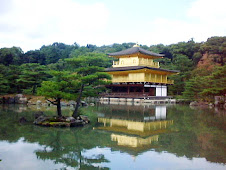

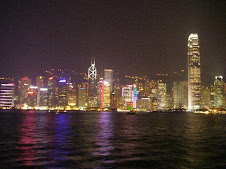
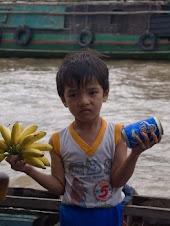
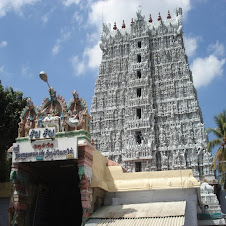
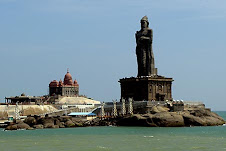
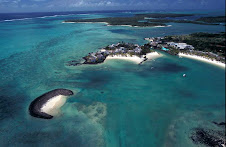


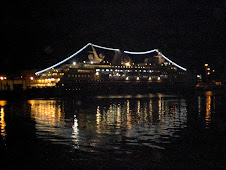
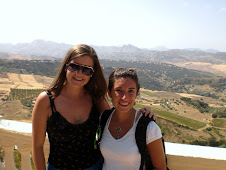

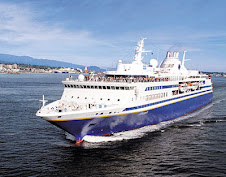
No comments:
Post a Comment